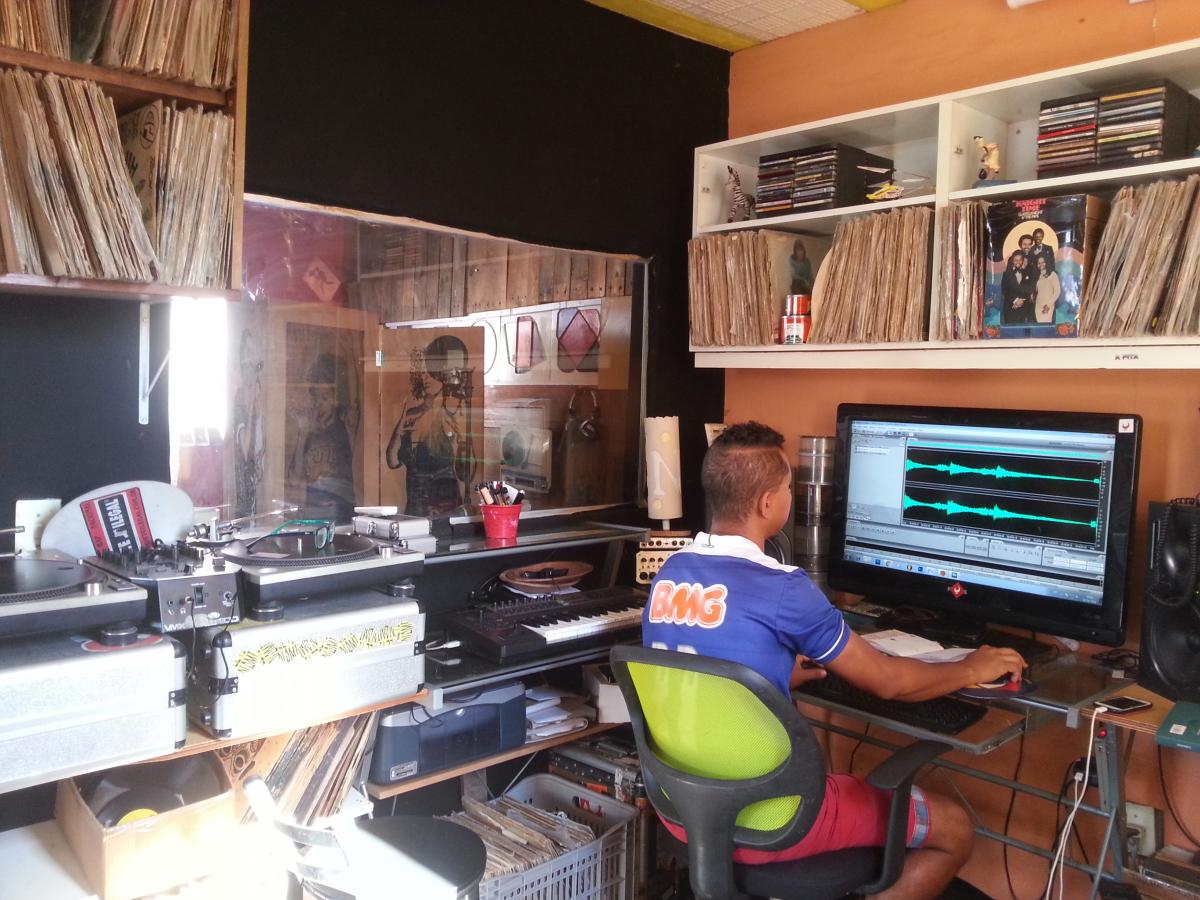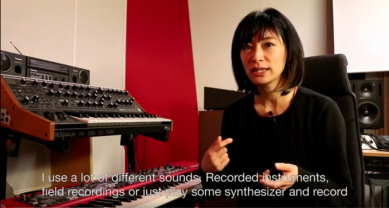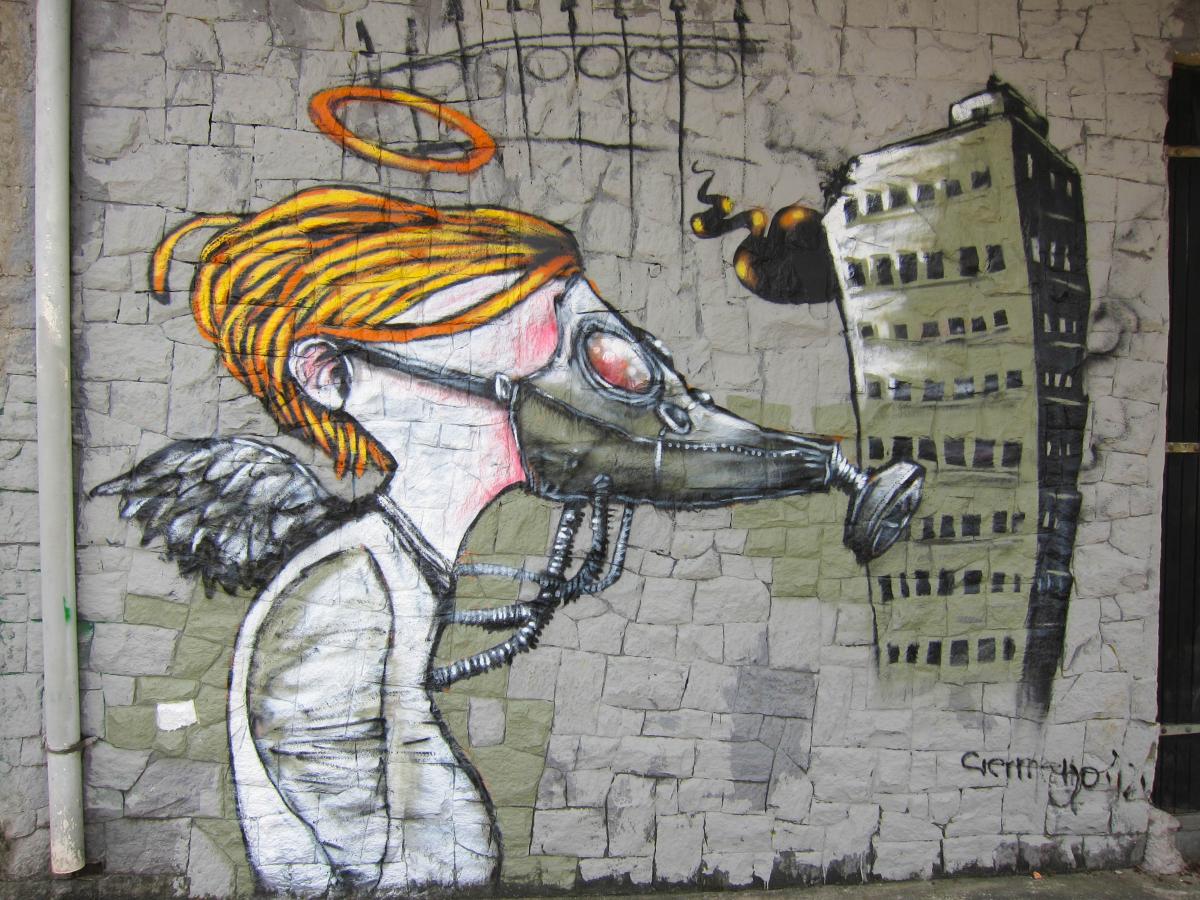
The Politics of Sample Chopping in Belo Horizonte
Sampling is one of the most important techniques used in rap’s musical production. However, its use declined throughout the 1990s due to, among other reasons, legal suits by record labels and publishers (Alaigh 2018; Marshall 2006). Such restriction on the use of samples resulted in creative adaptations by the artists (Sewell 2014). One of these shifts is the «chopping» technique. With regard to the local case study of Belo Horizonte, Brazil, our author argues that the option for using this technique is both economic and political, since producers are forced to chop samples due to copyright issues.
In the context of rap music production, «chopping» consists of cutting a sample into very short snippets, in order to reuse the resulting sliced excerpts to create a distinct musical arrangement. The chopping technique was popularized in the 1990s by beatmakers like DJ Premier and J Dilla. Since then, chopping has become a production trend among beatmakers who use samples. According to Schloss: «In the years since sampling began, in fact, chopping has largely displaced other forms of collage in sample-based hip-hop» (Schloss 2014, 151).
Chopping and other beat-making procedures have spread throughout the world along with rap music. In Brazil, rap started to be appropriated in the 1980s and has since spread to all the regions of the country. I have been in contact with Belo Horizonte’s hip hop scene since the early 2000s as a musician, communicator, and researcher. The South East Brazilian city has one of the most vibrant and diversified hip hop scenes in the country. Throughout its history, the local scene has been very much underground and regional, but its artists are increasingly reaching national visibility during the last decade. Even though sampling is not a prevalent beat-making technique in this local scene, chopping is a meaningful resource for local producers who still work with samples.
«É Noiz» by Tamara Franklin. The track is part of the female rappers’ collection «Desconstrução», produced by Clebin Quirino.
Avoiding Copyright Issues by Chopping Samples
Between 2016 and 2018, I carried out research on sampling among local beatmakers in Belo Horizonte. I observed that only a limited number of producers were using samples to make beats; among them Clebin Quirino, DJ Giffoni, Preto C, and DJ Sense. During the conversations with beatmakers, I have heard many times that there is a «right way» to sample songs. This «right way» would be using the sample in such a way that its source cannot be identified, in order to avoid copyright issues. In this sense, local beatmakers do not use long samples (with a full bar length, for example), neither do they use a large number of samples in the same beat. In contrast, these producers vividly use the chopping technique. In an interview with DJ Giffoni, the producer commented on the influence of legal matters on his choices:
If you sample in a way, for example, you sample it, you take a loop, and you make a beat with a song that already exists and it’s recorded. You take a loop of this song and make your song, then [if] you upload it on the YouTube, you’ll have problems. If you’re going to release a CD it will be a problem. When you send it to press your album, they’ll send it back [and say]: «Take the music from the CD or give me the [sample’s] legal authorization.» So there is the right way to sample. There is a way you can sample and there is a way you can’t. (DJ Giffoni 2017)
«O que acontece aqui?» by Família de Rua, produced by DJ Giffoni. The track is part of Família de Rua’s album «Ontem, Hoje e Sempre»
In this way, copyright issues clearly affect creative decisions in the local rap music scene. They contribute to the limited use of sampling and they also influence how a given sample might be used on a track. This fact was pointed out by producer Clebin Quirino as one of the reasons that made him choose chopping as one of his preferred beat-making procedures. He said:
I rarely use the whole sample because there is this copyright issue. But sometimes [if] the sample catches a lot of my attention, [if] it’s really cool, then I end up using it. It happens only a few times. But I’d rather re-arrange it, pick up only fast snippets and use one second from one, one second from another. (Clebin Quirino 2017)
«Que Assim Seja» by Ohana Santana. This track is also part of the collection «Desconstrução», produced by Clebin Quirino.
A Matter of Power
Since the early 1990s, music industry institutions have adopted the strategy of suing producers and rappers, forcing them to pay for using samples. This has been their main strategy for exerting power over their musical property. In a different time and space, Belo Horizonte’s beatmakers still deal with this issue, but in a rather indirect way. They rarely deal with major record companies, lawsuits, and royalties. As mentioned above in DJ Giffoni’s statement, copyright issues are made real when producers upload their tracks to streaming platforms or when they make large-scale print runs of their albums. Clebin Quirino also referred to this situation:
In Brazil this happens much more with monetization on YouTube and in other music streaming services. So people are using fewer samples because this falls into that copyright issue, depending on how you cut the sample. So most producers have chosen to create [their own musical arrangements], to avoid receiving a message from YouTube saying that their song belongs to someone else, or their song has excerpts of a someone else’s song. And to avoid the streaming platforms say they can’t make money with that song. (Clebin Quirino 2017)
The use of samples in rap music involves political issues insofar as it exposes and questions who owns a musical work and who is able to commercially exploit it. As sampling continues to be viewed as an unwelcome practice, underground rappers and producers remain on the weak side of this balance. While a new legal understanding regarding sampling is far away, local beatmakers in Belo Horizonte employ a tactic that addresses this struggle at a micro-level. By chopping samples, these beatmakers turn a beat-making technique in an everyday practice that, at the same, refers to rap music’s borrowing tradition, and serves to circumvent legal issues that may derive from this practice.
List of References
This article is part of Norient’s online publication Sampling Politics Today, published in 2020 as part of the research project «Glocal Sounds – Re-Working and Re-Coding Place References» (No. 162797), funded by the Swiss National Science Foundation (SNSF) and supported by the Bern University of the Arts HKB.
Bibliographic Record: Brasil, Michel. 2020. «The Politics of Sample Chopping in Belo Horizonte». In Sampling Politics Today, edited by Hannes Liechti, Thomas Burkhalter, and Philipp Rhensius (Norient Sound Series 1). Bern: Norient. DOI: 10.56513/nftg6449-15.
Biography
Published on September 24, 2020
Last updated on April 09, 2024
Topics
Sampling is political: about the use of chicken clucks or bomb sounds in current music.
Why does a Kenyan producer of the instrumental style EDM add vocals to his tracks? This topic is about HOW things are done, not WHAT.
How did the internet change the power dynamic in global music? How does Egyptian hip hop attempt to articulate truth to power?
Snap



